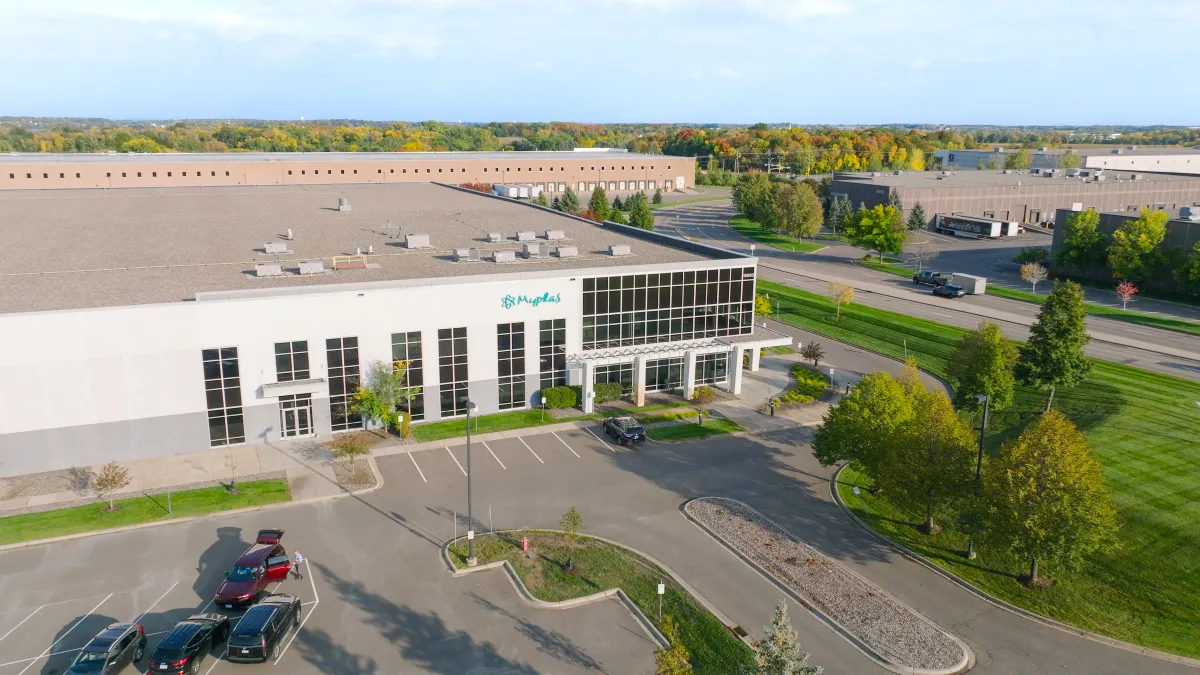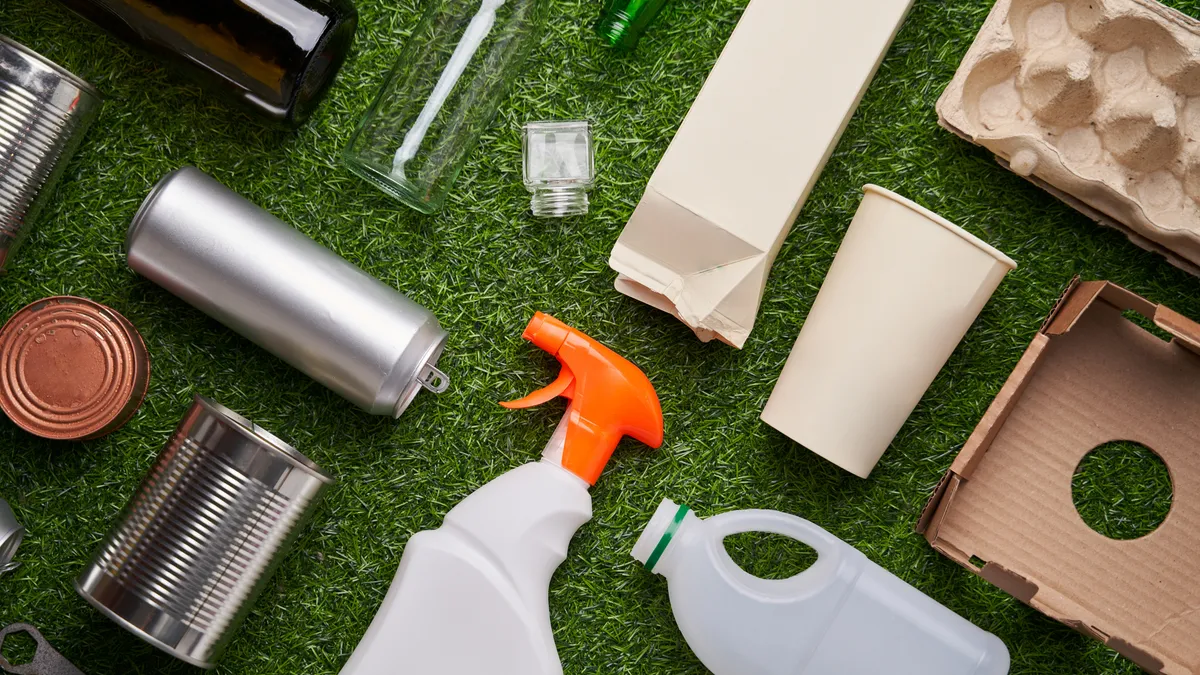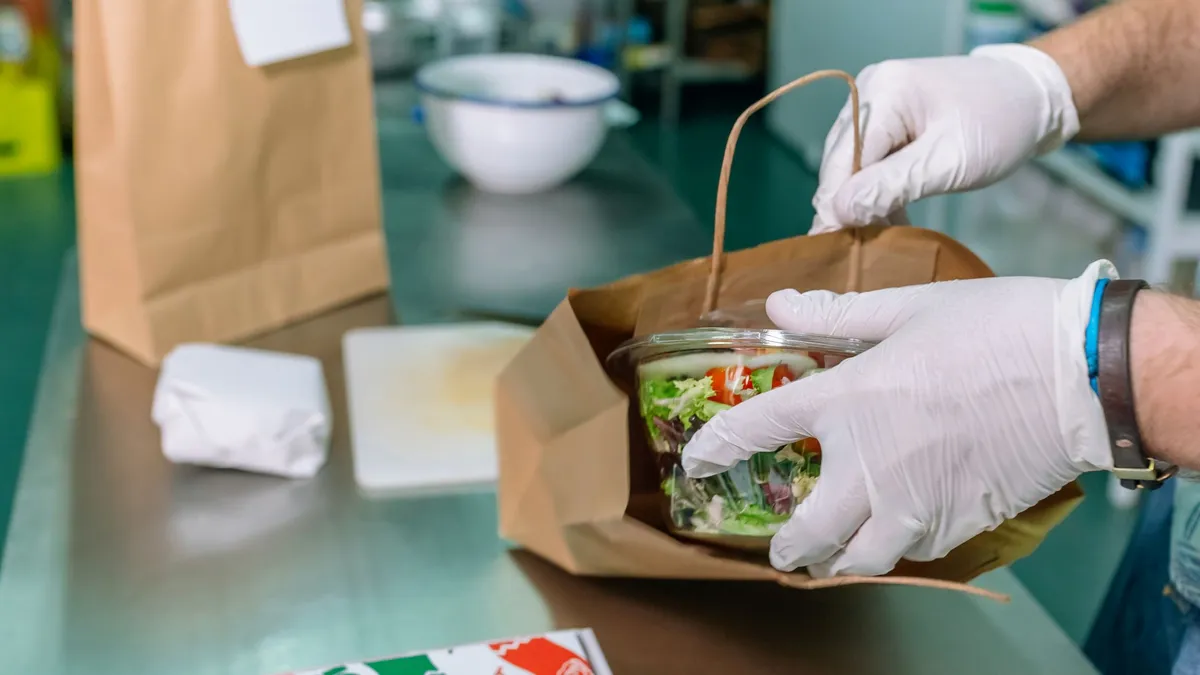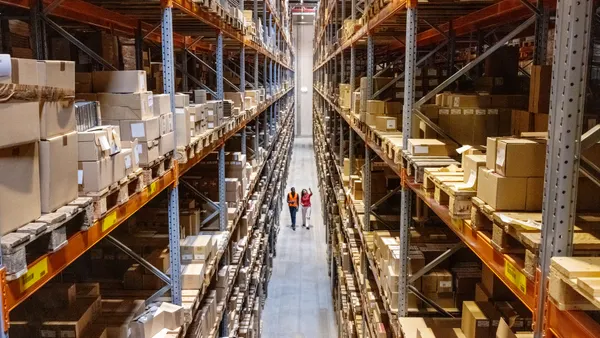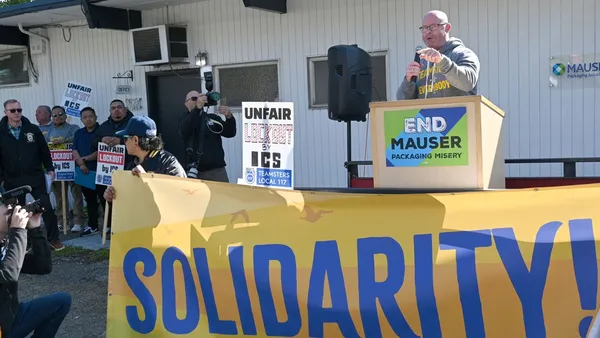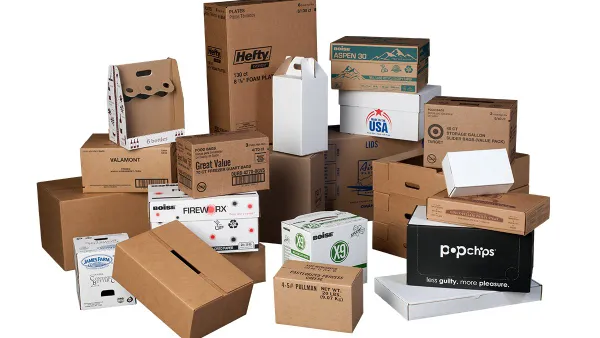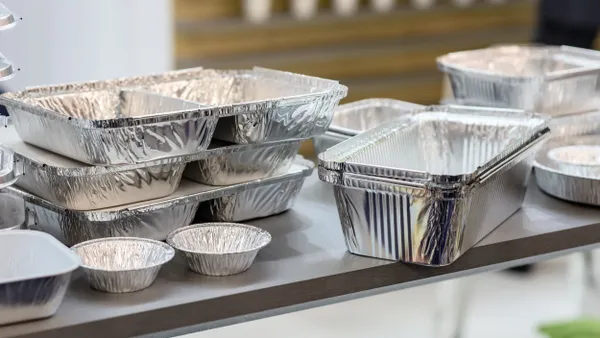Dive Brief:
- Myplas USA, a subsidiary of the South Africa-based plastic recycler, opened a 170,000-square-foot plastic film recycling facility in Rogers, Minnesota, on Monday. This is Myplas’ first plant in the United States.
- The facility will mechanically recycle and pelletize low-density and high-density polyethylene film, with a planned capacity of 90 million pounds per year.
- The facility received a $13 million joint equity investment, including support from General Mills, Schwan’s Co., Charter Next Generation, Target, Ecolab, the Alliance to End Plastic Waste, Closed Loop Partners and the Minnesota Department of Employment and Economic Development. The MBold coalition, which brings together a variety of stakeholders to try to build a circular economy for film in the Upper Midwest, heavily supported the project.
Dive Insight:
The U.S. uses 12 billion to 15 billion pounds of flexible film annually, but only about 5% gets recycled, according to Myplas. The material typically is not collected in residential curbside programs and often ends up in landfills or the environment.
“That flexible film that MRFs hate — not only because of the contamination level but it can also wrap around their equipment, it causes shutdowns, they’ll be down for a couple hours cleaning it all out — that is what we want to recycle at Myplas,” said Jane Fridley De Bigit, procurement and sales manager at Myplas USA, at the Packaging Recycling Summit in Atlanta last month. The key is “collecting it before it hits that single stream” to help MRFs and recycling facilities operate efficiently.
Still, other companies are investing to advance plastic film recycling in residential curbside programs, such as a WM and Dow pilot in the Chicago area. They’re scaling via Natura PCR and are pursuing plans to accept film curbside in other communities.
MBold participants stress the importance of regional partnerships to reach scale and ensure adequate supply and demand for such ventures.
“We could have looked elsewhere. We actually looked at many different locations,” but finding MBold “really set apart” Minnesota, said Andrew Pieterse, CEO of Myplas USA, at the Packaging Recycling Summit. “Really critical to the success of this initiative and this business is collaboration.”
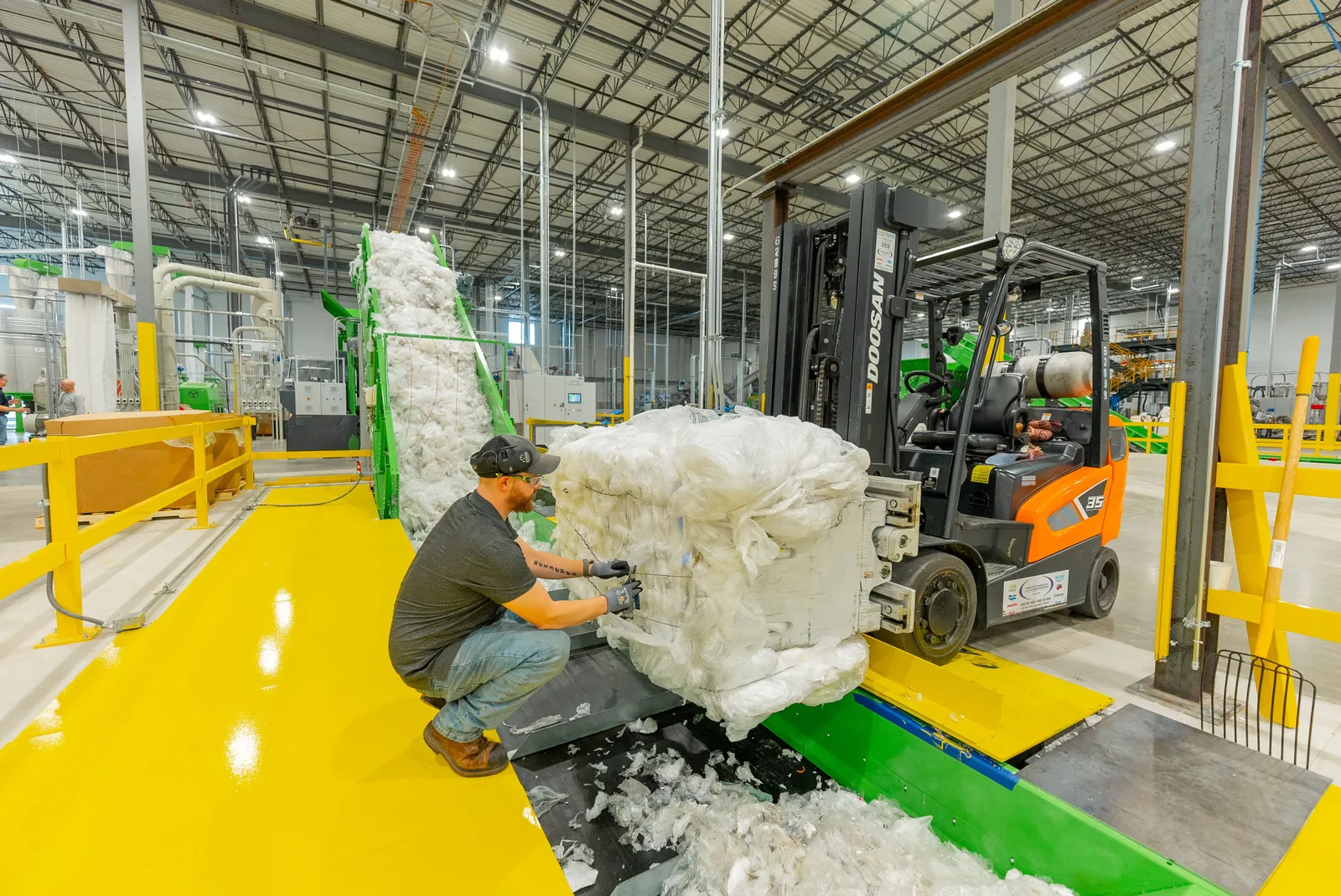
Other MBold participants noted at the event that the high quality of Myplas’ product is key. Pieterse said Myplas’ feedstock sourcing is “strategic and tactical” but will “take time to grow.” The company works with brands including Minnesota-based Target on back-of-house collection to secure much of the supply, but the next step is to harness postconsumer film, he said. Speakers explained that commercial back-of-house materials are of a higher grade than postconsumer, which has much higher contamination levels; targeting the proper feedstock is particularly important when striving for food-grade material production.
Similarly, Nova Chemicals announced this year that it’s developing its first plant to mechanically recycle postconsumer film, most of which will be collected via consumer drop-off sites or back-of-house retail.
The Myplas facility currently is targeting products including single-use plastic bags, food packaging, pallet wrap, shrink wrap and boat shrink wrap. Various pilot projects have sprung up in recent years across the Midwest — including in Minnesota and the Chicago area — for collecting boat wrap.
Film collected in the Midwest traditionally has been shipped to places like the East Coast or Texas for processing, but “what we really offer is a regional solution” with reach all the way to Chicago, Pieterse said. Myplas USA plans to continue scaling at the Rogers facility and across the Midwest, he added.



